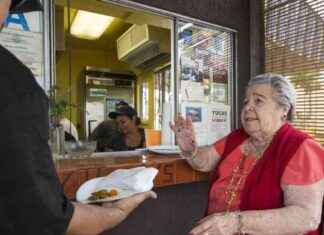Tens of thousands of candidates, including 25 for the presidency, embarked on a month-long electoral campaign in the Democratic Republic of Congo (DRC) on Sunday, November 19, in a tense political climate and against a backdrop of armed conflict in the east of the immense country. Twenty-six candidates were registered for the presidential election, but one opponent, former Prime Minister Augustin Matata Ponyo, announced in the evening his withdrawal in favor of the former governor of Katanga Moïse Katumbi. In recent months, the heavyweights of the opposition did not wait to motivate their bases, while President Félix Tshisekedi, candidate for a second term and favorite, multiplied the inaugurations and his team praised his record in multiple areas.
But the campaign is now official and is intensifying, with large popular meetings, caravans, media appearances, posters and leaflets bearing the numbers assigned to the candidates by the electoral commission. Félix Tshisekedi himself saw the big picture from day one, with a meeting at the Stade des Martyrs in Kinshasa, at its maximum capacity of 80,000 people. At the same time, one of his main challengers, Martin Fayulu, was haranguing crowds in a neighboring province.
On December 20, nearly 44 million registered voters, out of around a hundred million inhabitants, are called to elect their president, but also to choose among 25,832 candidates for the legislative elections, 44,110 candidates for the provincial elections and 31,234 for the municipal. A record, underlines the Independent National Electoral Commission (CENI), saying it is determined to organize the elections on the scheduled date despite logistical difficulties in a country of 2.3 million km2 with very limited infrastructure.
“The electoral commission does not inspire confidence”
“There is a political agenda that wants elections on time, but there are doubts about the technical capacity,” notes Trésor Kibangula, political analyst at the Ebuteli research institute. “Organizationally, the CENI does not inspire confidence,” thinks Sylvain Lesoye, a priest interviewed in a peripheral commune of Kinshasa, who mentions in particular the poor quality of voter cards whose inscriptions and photos have been erased.
“The CENI knows that this is a challenge that it must take up, its credibility depends on it,” said political scientist Jean-Luc Kong. “What’s scary is the crisis in the East.”
Violence by armed groups has lasted for almost thirty years in the region, which is experiencing a peak of crisis with the return to the scene of an old rebellion, the March 23 Movement (M23), supported by neighboring Rwanda, which has seized large parts of North Kivu. Because of the conflict, two territories of the province will not be able to vote normally, but if the provincial capital, Goma, were to fall, the entire process would be compromised.
The M23 “will not take Goma”, affirms Félix Tshisekedi, who made the return of peace a priority, while he also committed to improving the daily lives of the Congolese, diversifying the economy, building roads and public buildings , respect freedom of the press and expression. The whole picture is mixed, according to analysts, catastrophic according to the opposition, which paints a very dark picture of the situation and immediately calls it organized fraud.
“I’m not going to waste my time.”
In addition to Martin Fayulu, who claims victory was stolen from him in 2018, businessman Moïse Katumbi and Doctor Denis Mukwege, 2018 Nobel Peace Prize winner for his work on behalf of raped women, are among the main candidates of the opposition.
Representatives of five of them met this week in South Africa to study the possibility of a joint candidacy against the outgoing president who is all the more favored as the vote is in a single round. A common program was adopted, but by the emissaries of only four candidates, including Matata Ponyo who rallied Moïse Katumbi, the Fayulu camp not having joined the project.
On the benefit of voting, voters are divided. Eunice, 20, a geography student, is going to vote for the first time and says she is “happy” to do so for the candidate of her choice, who she expects will “improve living conditions”. Ezekiel, another 24-year-old business IT student, is disillusioned. There will be “fraud, like in 2018,” he says. Besides, “I won’t waste my time at the voting center.”






